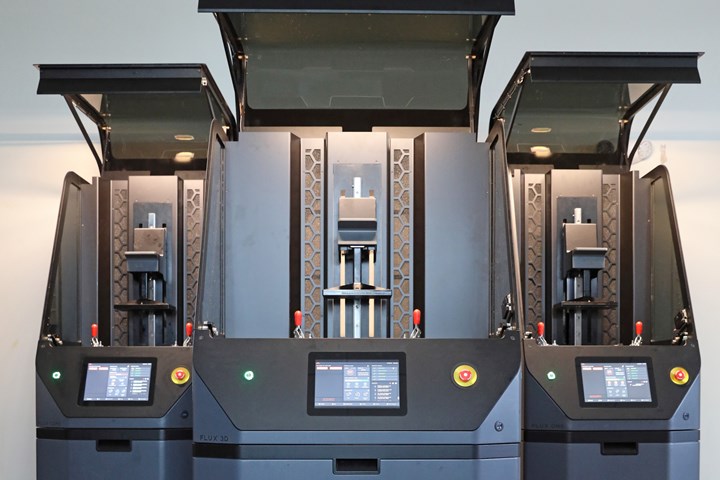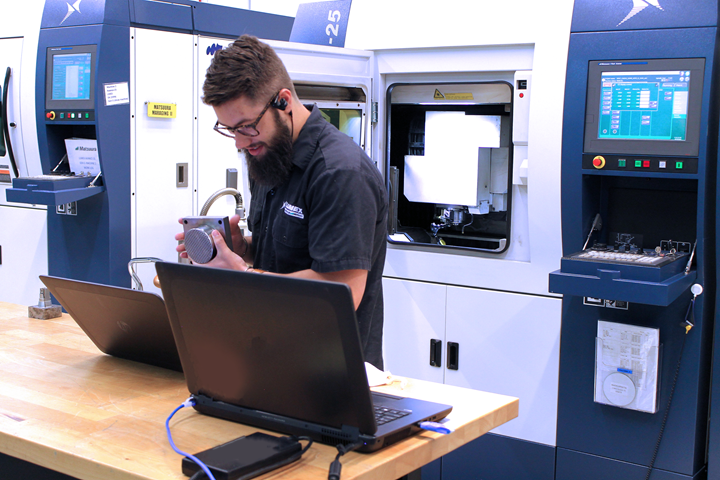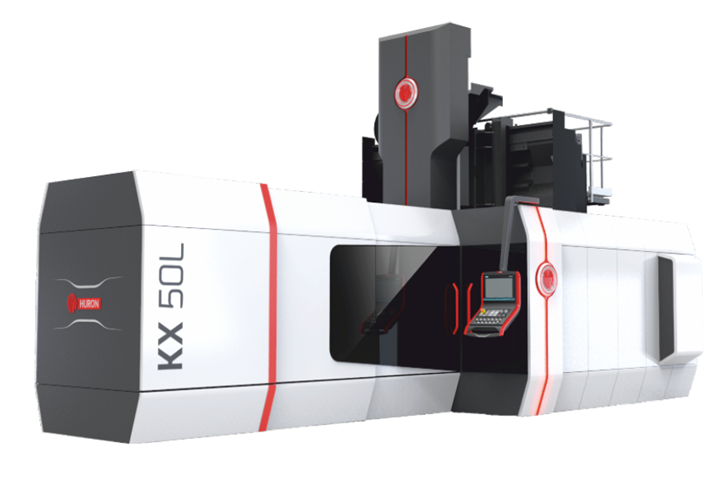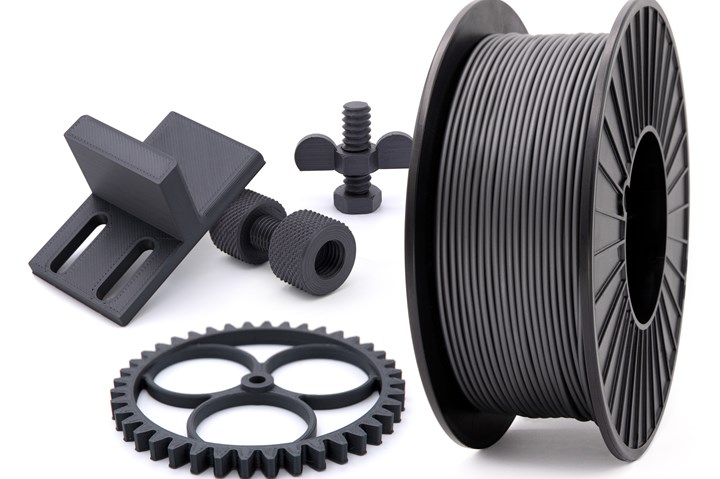MoldMaking Technology Noteworthy News, May. 31, 2021
3D Printing Line Targets Robust Mold Tooling; Full-Service Mold Builder Provides Engineering-Centric Solutions; Metal Additive Manufacturing Machine Series Enables High-Volume Mold Component Production, and more.
3D Printing Line Targets Robust Mold Tooling
Company adds new FRP printers and open access software to enable new advanced materials, including Flux Core and Flux 3D.

Photo Credit: Fortify
Fortify has extended its Flux Series line for filled and fiber-reinforced photopolymers 3D printing to include two new printers and software to enable customers and partners access to develop new advanced materials. Funds from the company’s recent equity round will be used to scale up manufacturing of these printers for end-use part applications.
All Fortify 3D printers employ the company’s patented processing technology, CKM (Continuous Kinetic Mixing), which ensures that additives stay uniformly distributed throughout the material while mitigating sedimentation and aggregation. Fortify’s other proprietary technology for aligning fibers, Fluxprint magnetic alignment, is now available in two configurations.
Fortify’s FLUX Series full lineup includes:
- Flux Core (New): Fortify’s baseline 3D printer includes CKM and is ideal for processing viscous particle-filled resins where magnetic alignment is not required. Applications include RF devices and electronic applications.
- Flux One (Released in 2020): Adds Fluxprint Z (Z-axis magnetic field) to the baseline Core 3D printer. The system is said to overcome the persistent challenge of Z-axis anisotropy in 3D printing. Applications include robust mold tooling, jigs and fixtures.
- Flux 3D (New): This printer leverages Fluxprint 3D (three-axis magnetic field) to the baseline Core 3D printer, and reportedly provides users with unprecedented levels of control to align fiber in any axis throughout parts as they are printed. Applications include heat sinks, heat exchangers and high-performance industrial connectors.
In addition to the hardware solutions, Fortify is to announce the availability of Flux Developer, a software platform that can be used on any of the Flux printers. Fortify says Flux Developer gives users the ability to push the limits of material properties by opening access to all processing parameters. With this expanded processing window, users are able to control variables such as exposure time and intensity, material flow, resin temperature and viscosity and even the build plate mechanics, as they develop and onboard new materials.
Full-Service Mold Builder Provides Engineering-Centric Solutions
Westminster Tool replaces the conventional one-sided mold manufacturing conversation with a collaborative process, aided by its full-service equipment and solutions.

Photo Credit: Westminster Tool
Westminster Tool Inc. specializes in complex, Class 101 injection molds with particularly challenging manufacturing dimensions and tolerances. In addition to serving the packaging and defense industries, Westminster Tool reports that it excels in the medical device industry, placing a high emphasis on strict dimensional requirements with long-term, repeatable results for medical device manufacturing.
The company’s full-service process is engineering-centric, including a range of solutions such as moldflow analysis, dimensional risk analysis, computed tomography (CT) scan and reverse engineering, as well as value-add services on the back end of mold building through tool sampling and an MFAT/capability study.
Westminster Tool says it replaces the conventional one-sided mold manufacturing conversation with a collaborative process that identifies the customer’s design challenges upfront before they become detrimental after mold sampling. State-of-the-art equipment helps the team make it happen, which includes a new wire EDM, the company’s Injection Molding Technology Center—which includes two Toyo injection molding presses—and its recent investment in expanding its high-speed milling capacity with one new five-axis and two new three-axis mills.
Metal Additive Manufacturing Machine Series Enables High-Volume Mold Component Production
The Matsuura Lumex series system implements conformal cooling and integrated porous venting, reducing EDM processes and capital equipment investments for tooling and molding machines.

Photo Credit: Matsuura Machinery USA Inc.
Matsuura’s metal 3D printing via its Lumex series enable the production of high-volume mold components with conformal cooling and integrated porous venting, minimizing the need for traditional EDM processes and reportedly providing significant savings for the production of molded plastic components.
The implementation of the Lumex machine emphasizes its success. Matsuura notes a metal injection molding customer added the Lumex Avance-25, a metal laser sintering hybrid milling machine to its new product development group, and reportedly reduced its market-entry tooling lead time from four weeks to four days.
Similarly, a high-volume consumer packaging producer utilized the Lumex technology to address replacement parts and spare component inventory for high-production molds. The company, which originally stocked $100,000’s of inventory for its molds, has now currently reduced its inventory requirements to only the most critical components.
Finally, Matsuura says a liquid silicone injection molder employed the controlled porosity technology on the Lumex system to reduce tooling development time, and now provides venting without the risk of flash. Further, the company avoids the previous trial and error, reducing its initial tool development in most cases by more than 80%.
Matsuura also offers production services, which benefits tooling, injection molding, CNC machining and die casting processes and operations. The Lumex team works with users throughout the entire process, including design to help customers fully realize the benefits throughout the life of their products.
Large Mold Builder Builds Strategic Alliances
Cavalier Tool & Manufacturing builds about 200 quality molds per year, aided by new technology investments, an experienced team and strategic alliances sought with customers and suppliers.

Photo Credit: Cavalier Tool & Manufacturing
Cavalier Tool & Manufacturing is a global mold manufacturer established in 1975 with 220 employees throughout Canada, Latin America, India and the U.S., designing and building mid- to large-size molds. This mold builder’s Windsor, Ontario 66,000-square-foot facility houses technology that builds about 200 molds per year for 250- to 4,000-ton presses. Cavalier builds injection, structural foam, gas assist, multi-shot, thermoset, prototype or compression molds for the automotive, commercial, recreational, medical, heavy truck and agricultural industries. With a worldwide customer base, including numerous Fortune 500 companies, Cavalier says it strives to develop strategic alliances with customers and suppliers.
The Cavalier team reportedly designs and builds a quality mold, on time and at a competitive price. Further, Cavalier says its mold building expertise enables the company to produces parts or tooling in a very short period of times. The latest equipment purchase was a second Huron KX 50L, a large five-axis CNC bridge mill for the tool and mold industry, configured as a double-column machine for fast, high-accuracy machining of complex parts. Added to its expertise is the acquisition of Mold Services International.
Additive Filament Eliminates Fume Emissions for Enhanced Design Flexibility
Jabil’s Jabil PA 0600 is a high-strength additive material with enhanced functionality for the development of complex parts such as tooling, workholding devices and more.

Photo Credit: Jabil
Jabil Inc. has made available its patent-pending additive filament material, Jabil PA 0600, which delivers high strength and stiffness required for demanding applications. The material was created, formulated and produced at the company’s Materials Innovation Center for use in traditional and additive manufacturing (AM).
The versatile Jabil PA 0600 filament is said to be well suited for a variety of applications. In additional to high stiffness, the material reportedly exhibits dimensional stability and good wear resistance, as well as low-friction, self-lubricating characteristics. Jabil notes that the new filament also delivers high levels of smoothness and durability, typically required in the production of gears, bearings and rollers; jigs, fixtures and tooling; and workholding devices, posts and nests. Additionally, the material simplifies post-print machining, including fly cuts, thread taps and heat stakes.
Moreover, Jabil PA 0600 filament provides enhanced functionality typically associated with Delrin Acetal plastic or alternative polyoxymethylene (POM) materials, without the risk of exposure to formaldehyde emissions when the material is overheated. According to the company, Jabil PA 0600 filament has been formulated without formaldehyde, so there is no release of noxious odors or fumes during processing. This offers product designers greater flexibility, speed and safety in developing complex parts that must be resistant to fatigue, friction and abrasion.
The Jabil PA 0600 filament is featured in the Ultimaker Marketplace in Ultimaker Cura 3D printing software and is available through DigiKey.
Read Next
Reasons to Use Fiber Lasers for Mold Cleaning
Fiber lasers offer a simplicity, speed, control and portability, minimizing mold cleaning risks.
Read MoreHow to Use Continuing Education to Remain Competitive in Moldmaking
Continued training helps moldmakers make tooling decisions and properly use the latest cutting tool to efficiently machine high-quality molds.
Read MoreHow to Use Strategic Planning Tools, Data to Manage the Human Side of Business
Q&A with Marion Wells, MMT EAB member and founder of Human Asset Management.
Read More

















